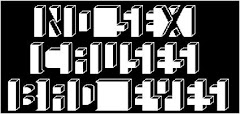patjonesny@aol.com wrote:
To: reysmont@yahoo.com, nyc-cb9m@juno.com
Subject: Fwd: In Suit Against Landlord, Tenants Make Unusual Accusation:Racketeering
Date: Fri, 11 Jul 2008 14:59:46 -0400
From: patjonesny@aol.comNY
Times, http://www.nytimes.com/2007/07/12/nyregion/12evict.html
July 12, 2007
In Suit Against Landlord, Tenants Make Unusual Accusation: Racketeering
By TIMOTHY WILLIAMS
A group of tenants filed a federal racketeering lawsuit against one of the city's fastest-growing residential landlords yesterday, accusing it of harassment, fraud, rent overcharges and illegal evictions.
The suit, filed in Federal District Court in Manhattan, contends that the landlord, the Pinnacle Group, and its owner, Joel Weiner,systematically evicted tenants to raise rents in apartments throughout the city, but primarily in units concentrated in Harlem, Washington Heights and the Bronx.
Because Pinnacle owns several thousand apartment units in those areas - most of them bought during the past four years - tenants and their lawyers said the company's actions constituted an attack on rent-regulated housing in some of Manhattan's few remainingworking-class neighborhoods.
Pinnacle has acknowledged sending out some 5,000 letters, calleddispossess notices, to tenants in about a quarter of its 21,000 units during a 29-month period from 2004 through 2006, citing nonpayment of rent, invalid line of succession for occupancy and other violations; however, it said only a few hundred people had actually been evicted.
Issuing a dispossess notice is a legal requirement before an eviction can take place. The company said that its rate of eviction was below the industry average.Pinnacle representatives said yesterday that data on evictions since 2006 were not available.
In a statement yesterday responding to the lawsuit, Kenneth K. Fisher, a lawyer and former city councilman who is representing Pinnacle, said that the company had not violated any laws.
"Pinnacle is proud of its record of providing safe and affordable housing for thousands of New York families, and we are confident that this lawsuit, which was released to the press before being served on us, will be found to be without merit," the statement read.
The lawsuit - filed by several individual Pinnacle tenants along with a tenants' group, Buyers and Renters United to Save Harlem, made up largely of Pinnacle tenants - is unusual in that it accuses Pinnacle of engaging in racketeering, including using the federal postal system and interstate wires as "part of an ongoing scheme to increase rents unlawfully, to receive illegal rents and ultimately, to free their properties from New York's rent control and rent stabilization requirements."
Racketeering allegations are more commonly used by the federal government to prosecute organized crime figures and drug traffickers.
The suit also contends that Pinnacle has intimidated tenants through threatened evictions and claimed to make building repairs and improvements that had never been made. The company has acknowledged in the past that it improperly passed on costs of repairs and apartment upgrades to new tenants, but said they were isolated mistakes.
Last year, both the state attorney general's office and the Manhattan district attorney's office began investigations into the company after receiving numerous complaints from tenants and elected officials.
In December, Pinnacle reached a settlement with the state in which it admitted no wrongdoing but agreed to hire an auditor to analyze its rents. The district attorney's investigation is continuing, officials said.Richard F. Levy, a senior partner at Jenner & Block, who isrepresenting the tenants pro bono, said the firm filed the lawsuitagainst Pinnacle after conducting its own yearlong investigation.
Andres Mares-Muro, a Pinnacle tenant who is a plaintiff in the suit, said he had recently learned that the rent on his Harlem apartment, $1,275, was almost double that of the previous tenant, $648. "In this supposedly rent-stabilized unit, we are paying market rate," he said.
^^^^^^^^^^^^^^^^^^^^^^
NB- I don't want to sound like I am defending Pinnacle but the fact is that when people don't pay their rent Landlords must take them to court and either collect the debt or evict them.
Another fact is that many rent controlled and rent stabilized apartments have changed tenants several times in a surrepticious manner against payment of "key money" and never changed the leases to the new tenants name. I know of cases, for example, where a rent controlled apartment was leased to a person back in the 1950's and in 2008 was still under that tenant's name who had died in 1960.
The truth is that this type of problems are not at all unusual in Upper Manhattan.
A new Landlord such a Pinnacle simple enforces the laws that have been ignored for years by previous owners and it is done for many reasons but the prinicpal reason is that it is a good basic business practice to recover regulated apartments, rehabilitate them and apply for the Major Capital Improvement allowances to increase the base rents. Once rents reach $2000/month the unit becomes de-regulated and the Landlord can charge Market rates.
Landlords are in it for the money, they are not social service organizations, keeping in mind that even social service not-for-profit housing will evict tenants for non-payment and for illegal succession or squatting.
In the joint Hearing that CB9M and CB12M held last year on Pinnacle most of the tesitmony and documentation supported the actions taken by Pinnacle and on a number of instances satisfactory agreements were reached between the tenants and Pinnacle.
If it is proven that Pinnacle has abused the Courts and/or MCI systems it should be punished to the full extent of the laws.
However, in most cases the Pinnacle actions were within the law and permitted, the problem is the sheer volume and the total lack of sensitivity to the common practices in the communites affected.
It was strongly recommended, personally by me to Joel Wiener to set up an ombudsman desk to evaluate each case before taking them to Court keeping in mind the peculiarity of Upper Manhattan in regards to succession - I never heard one way or another if he did.
I did not, in any way, thought or even attempted, to dissuade him from taking legal action against rent delinquent tenants.- JRM
Subscribe to:
Post Comments (Atom)








+(3).jpg)



.jpg)
+(3).jpg)


No comments:
Post a Comment